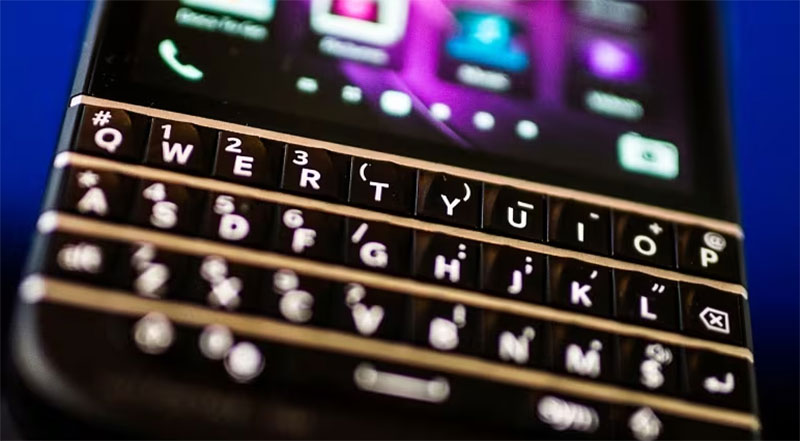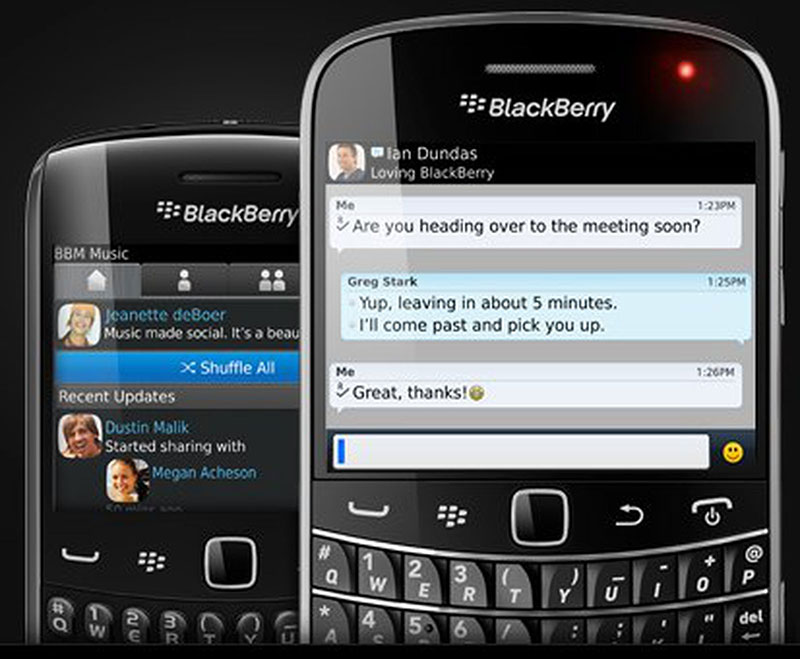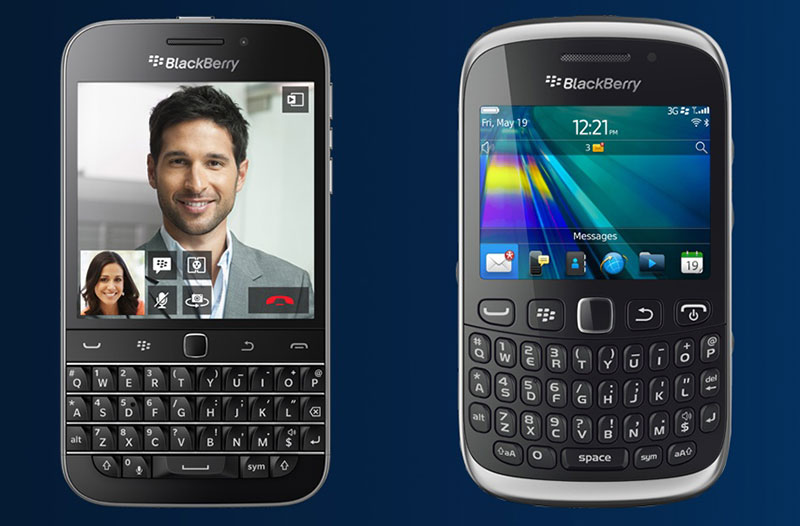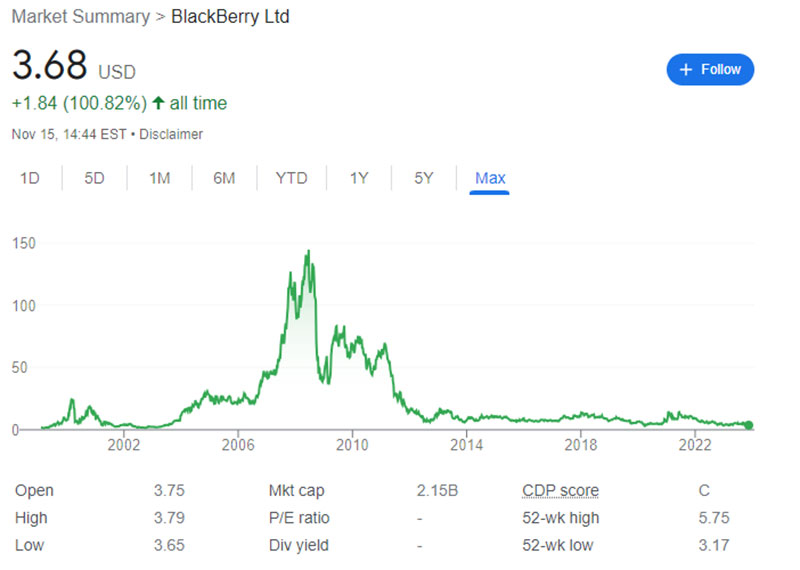The Tech Shift: What Happened to BlackBerry?

BlackBerry. That name used to be everywhere. It was like, if you didn’t have one, were you even doing business? What happened to BlackBerry, though? They went from the top dog to, well, not even in the dog park anymore.
Back in the day, BlackBerry was a trailblazer. Their phones were like the Swiss Army knife of gadgets. You had everything you needed in one place, and it was a game-changer.
Ever heard of the term “CrackBerry”? Yeah, that was for real. It’s what people called BlackBerrys ’cause folks were so hooked on them. They were more than just phones; they became a status symbol. If you had a BlackBerry, it meant you were somebody, especially in the corporate world.
What happened to BlackBerry that made it go from a cultural icon to almost forgotten? It’s a wild ride.
Early Success and Innovation
Pioneering the Smartphone Market
Introduction of Push Email and QWERTY Keyboards

Alright, so BlackBerry comes in, right? And they’re all like, “Check this out: push email.” This meant you got your emails instantly.
No refreshing, no waiting. It was a big deal. And the QWERTY keyboard? Texting and emailing on the go were suddenly a breeze.
BlackBerry’s Peak Market Share
At its peak, man, BlackBerry was the king of the hill. The market share they had was bananas.
Everyone from business execs to celebs had one glued to their hand. It’s wild thinking about what happened to BlackBerry when they were at the top, ruling the world.
Security and Corporate Dominance
Unmatched Security Features
Here’s the thing: BlackBerry wasn’t just cool; it was like Fort Knox in your pocket.
The security was unmatched. Governments and big companies were all over it because, well, no one could hack into these bad boys.
The Corporate World’s Preferred Choice
Because of this insane security, the corporate world was all in. BlackBerry was the preferred choice, hands down.
Meetings, emails, schedules – it was all there. And secure, which was the cherry on top.
The Turning Point
The Arrival of Competitors
The Launch of Apple’s iPhone
So, BlackBerry’s living large, right? But then, boom, Apple drops the iPhone. It’s like nothing anyone’s seen before.
Full touchscreen, sleek design – it’s a game-changer. People start asking, “What happened to BlackBerry’s innovation?” ’cause now, they’ve got some serious competition.
The Android Revolution
Then, there’s the Android revolution. It’s not just one phone; it’s a whole army of them. Different brands, different styles, all running on Android.
They’re flexible, customizable, and, let’s face it, cool. BlackBerry’s market share? Yeah, it’s starting to look a little shaky.
BlackBerry’s Initial Response
The BlackBerry Storm and Torch Failures
So, BlackBerry panics a bit. They throw out the Storm and Torch – their answers to the iPhone. But it’s a swing and a miss.
People aren’t feeling it. The Storm’s touchscreen is wonky, and the Torch can’t quite decide if it’s a slider phone or a BlackBerry.
It’s a tough spot, and everyone’s wondering what happened to BlackBerry’s magic touch.
Delayed Adoption of Touchscreen Technology
The big issue? BlackBerry’s slow on the uptake with touchscreen tech. When they finally jump on the bandwagon, it feels like too little, too late.
The world’s moved on, and BlackBerry’s playing catch-up.
Strategic Missteps
Ignoring Consumer Trends
Resistance to Full Touchscreen Interface
Here’s the kicker: BlackBerry’s resisting the full touchscreen. They’re clinging to those physical keyboards like a lifeline.
It’s like they can’t see the writing on the wall, and it’s spelled out in big, bold letters: TOUCHSCREEN.
Overreliance on Physical Keyboards
That QWERTY keyboard, once their crown jewel, is now looking a bit… old school. Folks are swiping and tapping away, and physical keyboards?
They’re not the vibe anymore.
BBM and the Social Media Wave
Late Opening of BBM to Other Platforms

Remember BBM? BlackBerry Messenger was the bomb. But BlackBerry kept it exclusive for too long.
By the time they let other phones in on the action, most people had moved on. “What happened to BlackBerry being ahead of the curve?” That’s the question on everyone’s lips.
Losing Ground to WhatsApp and Others
And then there’s WhatsApp and the gang – they’re stealing the show. They’re free, they’re on every platform, and they’re easy to use.
BBM’s losing ground, and it’s not looking good for BlackBerry.
Technological Stagnation
Operating System Limitations
Lack of Developer Support
Picture this: you’ve got a cool phone, but it’s like a ghost town. That’s what happened to BlackBerry’s app world.
Developers weren’t hanging around. Why? ‘Cause everyone was busy building stuff for iOS and Android. BlackBerry’s OS was left in the dust, twiddling its thumbs.
Incompatibility with Popular Apps
Ever tried fitting a square peg in a round hole? That’s BlackBerry trying to get the cool apps everyone wants.
It’s a no-go.
People are all about Instagram, Snapchat, and other hot apps, but BlackBerry? It’s not on the invite list.
Lack of Diversification
Overdependence on the Smartphone Segment
BlackBerry’s got all its eggs in one basket, and that basket’s starting to wobble. They’re all-in on smartphones, but the world’s moving fast.
Tech’s like a party, and you gotta mingle, not just stick with your first dance partner.
Inadequate Expansion into Other Tech Domains
Other brands are exploring – smartwatches, tablets, you name it. But BlackBerry? It’s like they’ve got tunnel vision with smartphones.
Diversification’s the name of the game, but they’re not playing.
Decline in Market Share
Losing the Corporate Market
Security Concerns and Enterprise Focus
Remember BlackBerry’s Fort Knox vibes? Well, turns out, others can play that game too.
Companies are starting to side-eye BlackBerry, ’cause there’s new tech on the block that’s just as secure and way more versatile.
Competition from More Versatile Devices
Enterprises want the Swiss Army knife, not just the single-blade.
They’re looking at iPhones and Androids that can do it all – and do it with style. BlackBerry’s starting to feel like that one-trick pony in a field of show horses.
The Consumer Shift
Shift to More User-Friendly Interfaces
Consumers are like, “Make it easy, make it fun,” and BlackBerry’s interface? It’s not getting the laughs.
People want smooth, intuitive, and fast. BlackBerry’s still fumbling with buttons while everyone else is swiping away.
BlackBerry’s Declining Cool Factor
Cool’s a currency, and BlackBerry’s bank is running low. The brand that was once a status symbol is now feeling a bit like yesterday’s news.
The buzz is all about the new kids on the block, and what happened to BlackBerry? It’s looking more like a retro throwback than a trendsetter.
Attempts at Revival
The BlackBerry Playbook and BlackBerry 10
The Playbook’s Market Failure
So, BlackBerry drops this tablet, the Playbook. It’s sleek, it’s got a nice screen, but guess what? It’s like showing up to a party after everyone’s left.
The app scene is a ghost town, and without the cool apps, it’s just… meh.
BlackBerry 10’s Inability to Recapture Market

Next up, BlackBerry 10. It’s smooth, it’s new, but it’s like showing up to a drag race with a bicycle.
The competition’s miles ahead, and BB10’s pedaling hard just to catch up. But the crowd’s eyes are on the flashier, faster contenders.
The BlackBerry Priv
Last Effort with Android OS
Alright, BlackBerry takes a leap. They’re like, “Let’s go Android.”
Enter the Priv.
It’s got a slide-out keyboard, ’cause old habits die hard, right? It’s their Hail Mary, their shot at redemption.
The Priv’s Market Reception
But the crowd’s tough. They’ve seen cooler, sleeker, faster.
The Priv’s not bad, but it’s like showing up to a fashion show in last season’s threads. It’s just not turning heads like they hoped.
The Aftermath
Corporate Restructuring and Layoffs
Financial Losses and Downsizing

It’s a rough ride. Numbers are down, and it’s time to tighten the belt. Layoffs, cutbacks, you name it.
BlackBerry’s trimming the fat, but it’s more than just a diet; it’s survival mode.
The Shift Away from Hardware
It’s like a band changing genres. BlackBerry’s stepping away from the mic and the phones.
They’re looking elsewhere, maybe backstage, away from the smartphone spotlight.
BlackBerry Today
Focus on Cybersecurity and IoT
Fast forward, and BlackBerry‘s wearing a new hat. They’re all about cybersecurity, making things safe and sound in a world where hacking’s like the new black.
They’re dabbling in IoT, too. It’s a new playground, and they’re making new friends.
The Legacy of BlackBerry
What happened to BlackBerry? It’s a story of hits, misses, and a comeback – kind of. They’re the band with that one epic album everyone remembers.
They’ve had their highs, they’ve hit lows, but they’re still in the studio, cooking up something new. It’s not the end, just a new track.
Lessons Learned
The Importance of Adapting to Change
Innovation as a Continuous Necessity
Here’s the scoop: staying the same is like hitting pause while everyone else is hitting fast forward. BlackBerry, they had their fingers on pause.
Innovation is the name of the game, and they kinda lost track of the ball. It’s like they were jamming to their own tunes while everyone else was streaming the next big thing.
The Cost of Ignoring Market Trends
What happened to BlackBerry is a bit of a cautionary tale, ain’t it? They had their eyes glued on their own lane, missing the traffic swerving around them.
Market trends?
They’re like weather patterns, man. Ignore ’em, and you might just get caught in a storm without an umbrella.
The Future of Technology Companies
Diversification and Flexibility
Tech’s like a wild party – always changing, always moving. Diversification? That’s your backstage pass to more opportunities. Don’t put all your eggs in one speaker, ya know?
Learning from BlackBerry’s Story
What happened to BlackBerry isn’t just a story; it’s a lesson. It’s like they’re the older cousin who partied too hard, ignored the signs, and now, they’re passing down wisdom.
It’s all about listening, shifting, and keeping an eye on the horizon. You’ve gotta dance to the rhythm of tech, not just your own beat.
FAQ On What Happened To BlackBerry
Why Did BlackBerry Fall Off?
Man, I get this one a lot. So, here’s the scoop. BlackBerry was riding high, right? But then came the iPhone and Android wave, and BlackBerry… just kinda missed the memo.
They stuck to their guns too long – those physical keyboards and all that.
Didn’t adapt quick enough to the touchscreen frenzy. Plus, app developers weren’t too keen on BlackBerry’s OS. So, it’s like they were at a party where everyone suddenly switched to a language they didn’t speak. Tough break.
What Caused BlackBerry’s Decline in Popularity?
Alright, it wasn’t just one thing, you know? It was a mix. First up, they were slow on the uptake with the whole touchscreen thing.
Then there’s the app scene – they weren’t getting the cool apps everyone wanted.
And let’s not forget, messaging moved on – WhatsApp and others took over, while BBM stayed in its own lane too long.
Plus, the whole vibe of BlackBerry started to feel a bit… last season.
Did BlackBerry Stop Making Phones?
Yeah, so here’s the deal. BlackBerry didn’t exactly stop but more like, took a back seat.
They outsourced their phone-making to other companies for a bit, trying to catch the Android wave with the BlackBerry Priv and stuff.
But eventually, in 2020, they called it quits on the whole phone production gig.
Now, they’re more into the behind-the-scenes tech stuff, like cybersecurity and software. Phones? Not their jam anymore.
Can You Still Use a BlackBerry in 2023?
You bet! If you’ve got a BlackBerry lying around, it’s not a total paperweight.
But here’s the catch – they pulled the plug on their services in early 2022, so those old-school BlackBerrys won’t be much more than a throwback text and call machine.
If you’re rocking a newer, Android-based BlackBerry, you’re in better shape.
But let’s be real, it’s not the same without the classic BlackBerry services.
Is BlackBerry Still in Business?
Totally, but not like in the heyday of BBM pings and push emails. They’ve pivoted big time. Now, they’re all about cybersecurity and enterprise solutions.
Think of them as the tech world’s consultants, dishing out security advice and software instead of those iconic handsets. They’re still in the game, just playing a different position.
What Was BlackBerry’s Biggest Mistake?
Hindsight’s 20/20, right? But if you ask me, BlackBerry’s big oops was not jumping on the touchscreen bandwagon when it mattered. They clung to those physical keyboards like a security blanket.
And they were a tad too confident that business folks would stick by them, no matter what. They underestimated how much everyone – CEOs, soccer moms, teens – would fall head over heels for those shiny, app-filled touchscreens.
Why Was BlackBerry So Popular at First?
Oh man, BlackBerry was the king of cool and productivity rolled into one. Push email was like magic back in the day – getting your emails on the go? Revolutionary! Those QWERTY keyboards made typing a breeze, and BBM? It was WhatsApp before WhatsApp was a thing.
Plus, that little blinking red light for notifications? Addictive. They nailed the business tech chic vibe like no other.
How Did iPhones and Androids Contribute to BlackBerry’s Downfall?
iPhones and Androids were like the new kids on the block that everyone wanted to hang with. They brought the whole app universe and touchscreens to the party.
And they weren’t just for the tech-savvy – they made smartphones cool for everyone. BlackBerry just couldn’t keep up with that. They were still flipping through their Rolodex while iPhones and Androids were swiping right on innovation and user-friendliness.
What Was the Public’s Reaction to BlackBerry’s Decline?
It was a mix, you know? Some folks were nostalgic, remembering their first BlackBerry buzz with a tear in their eye. But let’s be real, a lot of people had already moved on.
They were too busy swiping and tapping on their glass screens. Sure, there was a bit of an ‘end of an era’ vibe, but it wasn’t like the world stopped spinning. Tech moves fast, and so do people.
What Lessons Can Other Tech Companies Learn from BlackBerry?
Here’s the deal – adapt or become a trivia question. BlackBerry taught everyone that no matter how big you are, you’ve got to keep your ear to the ground. Innovate constantly, listen to your users, and never get too comfy.
And diversify! Don’t put all your eggs in one tech basket. It’s like surfing; you’ve got to ride the waves of change, or you’ll wipe out.
Conclusion On What Happened To BlackBerry
So, what happened to BlackBerry? It’s like that epic TV series everyone was hooked on, and then bam, the finale hits, and it’s all over. BlackBerry’s tale? It’s the end of a wild ride, a journey from being everyone’s tech darling to sort of a ‘remember when?’ They didn’t just fade out; they went out with lessons for all.
BlackBerry isn’t just a name or a gadget; it’s a chapter in the big, fat book of tech history. They were pioneers, man! Push email, BBM, those cool little keyboards? They set the stage. Sure, they missed a few cues, took a few wrong turns, but hey, they’re engraved in the tech hall of fame, no doubt.
If you liked this article about what happened to BlackBerry, you should check out this article about what happened to MoviePass.
There are also similar articles discussing what happened to Quiznos, what happened to Pan Am, what happened to Sears, and what happened to Pontiac.
And let’s not forget about articles on what happened to Circuit City, what happened to American Apparel, startup failure, and failed startups.
- Healthcare software: Exploring 10 essential types and their benefits - May 3, 2024
- The Best CSS Preprocessors for Developers - May 3, 2024
- A Developer’s Guide: What is PHP Used For? - May 3, 2024








